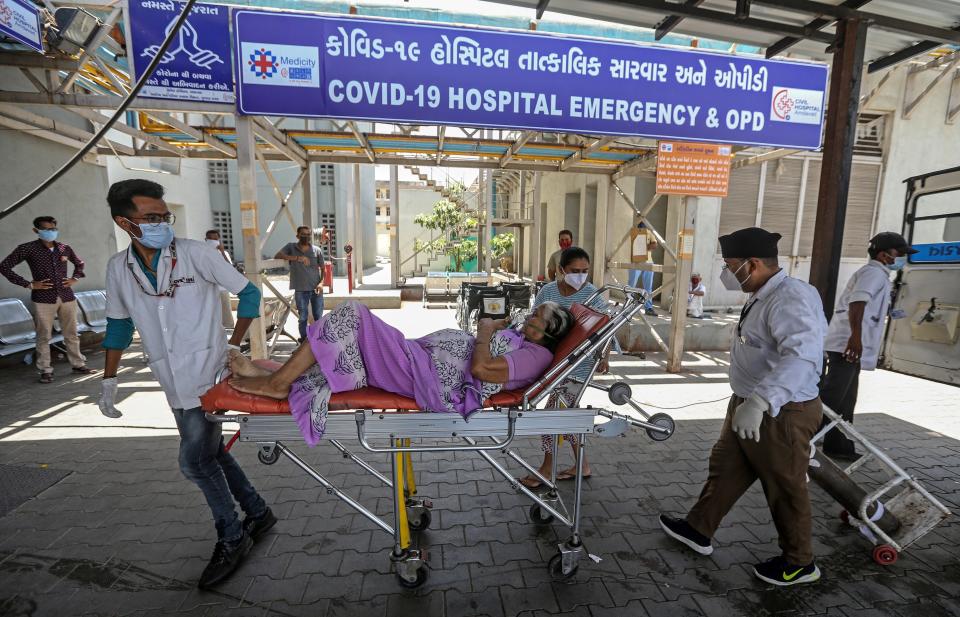Mucormycosis: What you need to know about deadly black fungus seen in Covid-19 patients in India

Hospitals in India are reporting a rise in the number of Covid patients suffering from a secondary black fungus infection, with over 200 such cases reported across the country.
The fungal infection called mucormycosis is caused by a group of moulds called “mucormycetes” that are present in the air and cause complications in those with acute illnesses such as severe Covid, or in people with compromised immunity.
According to doctors, once inhaled the infection in such patients could spread into the sinus cavities, lungs, and chest cavities.
Currently the reasons for the black fungus infection in Covid patients has not been extensively studied.
However, experts believe steroids prescribed to lower the acute inflammatory response in some severe Covid patients may be lowering their immunity enough for the fungal infection to take root as they recover from the coronavirus infection.
Pre-existing comorbidities like diabetes, obesity, and high or uncontrollable level of blood sugar may also put Covid patients at a higher risk of catching mucormycosis.
According to Delhi doctors, patients who contract the black fungus have around a 50 per cent survival rate.
Some of the signs and symptoms of the fungal infection include persistent pain and headaches caused when the fungus infects sinus cavities and nerves.
The Indian Council of Medical Research (ICMR) has asked patients to look out for signs including one-sided facial pain, tooth ache, nasal discharge as well as blackish discolouration at the bridge of the nose.
Evidence based Advisory in the time of #COVID-19 (𝐒𝐜𝐫𝐞𝐞𝐧𝐢𝐧𝐠, 𝐃𝐢𝐚𝐠𝐧𝐨𝐬𝐢𝐬 & 𝐌𝐚𝐧𝐚𝐠𝐞𝐦𝐞𝐧𝐭 𝐨𝐟 𝐌𝐮𝐜𝐨𝐫𝐦𝐲𝐜𝐨𝐬𝐢𝐬) @MoHFW_INDIA @PIB_India @COVIDNewsByMIB @MIB_India #COVID19India #IndiaFightsCOVID19 #mucormycosis #COVID19Update pic.twitter.com/iOGVArojy1
— ICMR (@ICMRDELHI) May 9, 2021
Mucormycosis infection also reportedly causes people to develop bloodshot eyes, poor vision, or swelling in one of the eyes.
Pain on the cheekbone and skin lesions have also been reported in those infected by the fungus, as well as delirium, memory loss, and neurological impairment.
The most characteristic feature is facial deformity and the growth of black patches around the eyes and nose.
In order to manage the symptoms, ICMR advises doctors to control diabetes in patients and discontinue prescription of drugs that modulate the immune system.
Read More
India reports new deaths due to Covid-linked ‘black fungus’ as outbreak spreads to more cities
Mucormycosis: What you need to know about deadly black fungus seen in Covid-19 patients in India
People aged 38 and 39 to be eligible for Covid vaccination from Thursday

 Yahoo Finance
Yahoo Finance 